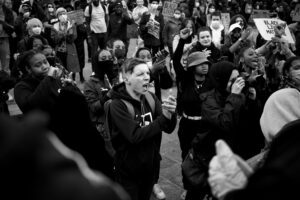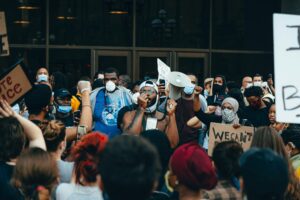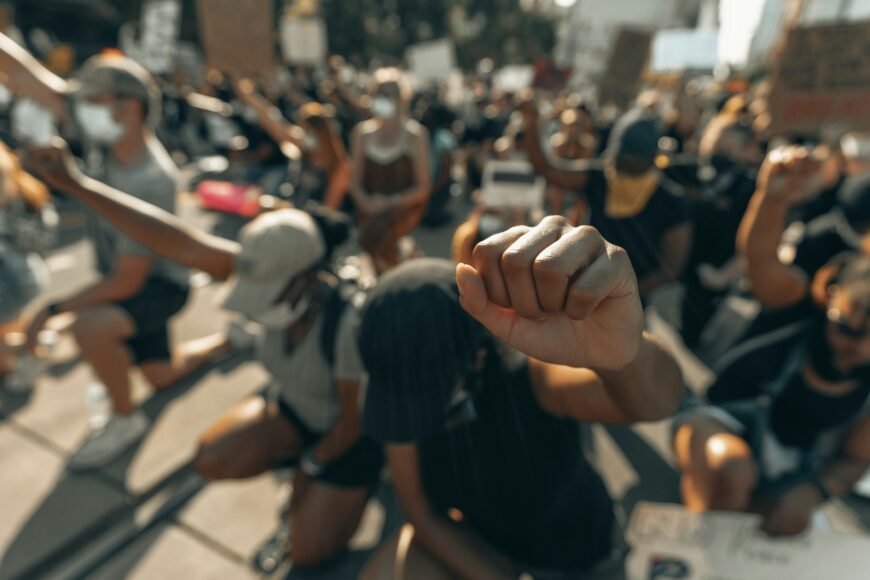Volunteering abroad is often seen as a way to contribute to communities in need, but it can also offer a deeper understanding of the global struggle for racial justice. As Black History Month is this month, it’s the perfect time to reflect on how volunteering abroad can illuminate the complexities of racial justice in different parts of the world and foster solidarity across borders.
From the legacies of colonialism to contemporary struggles for racial equality, volunteering abroad can be transformative, opening our eyes to the universal fight for justice, equality, and dignity for Black communities worldwide. This blog explores how volunteering abroad can teach us about the global fight for racial justice and how that understanding can shape our actions back home.
Volunteering Abroad Exposes the Global Nature of Racial Injustice
While racial justice is often discussed in the context of struggles faced by Black communities in the U.S. or Europe, racial injustice is a global issue. From the impacts of colonialism and the slave trade to ongoing systems of discrimination, Black communities around the world continue to face obstacles to equity and self-determination.
Volunteering in countries with rich histories of racial struggle, such as South Africa or Jamaica, can offer invaluable perspective on how deeply entrenched these systems are. For example, in South Africa, volunteering might provide opportunities to learn about the lasting impacts of apartheid and the ongoing fight for racial equality through community development programs, educational initiatives, or human rights work. Similarly, in Brazil, with its significant African diaspora, volunteers might work in local Black communities where historical and current challenges are tied to racial injustice, from economic inequality to issues in the criminal justice system.
By immersing yourself in these global contexts, you gain firsthand insight into the specific ways racial injustice manifests in different countries. This knowledge fosters a broader, more nuanced understanding of racial justice as a global issue, rather than one confined to specific regions.
Learning from Local Activists and Movements
In many parts of the world, grassroots racial justice movements lead the charge for change. Volunteering abroad allows you to connect with local activists pushing for racial equity and justice. These grassroots movements may operate outside the global spotlight, but their work is no less important.
For example, in the Caribbean, activists might be working to decolonize educatio n systems or reclaim land from foreign corporations. In parts of Africa, movements might focus on dismantling neo-colonial economic structures or fighting for better representation in political spaces. These movements are often fueled by local knowledge, community solidarity, and a deep understanding of the unique racial struggles within their region.
n systems or reclaim land from foreign corporations. In parts of Africa, movements might focus on dismantling neo-colonial economic structures or fighting for better representation in political spaces. These movements are often fueled by local knowledge, community solidarity, and a deep understanding of the unique racial struggles within their region.
Volunteering with organizations that collaborate with these movements offers the opportunity to learn directly from local activists. You might contribute to initiatives advocating for reparations, pushing for legal reform, or assisting with cultural preservation. These experiences allow you to witness the creative and strategic ways people are challenging racial injustice in their communities, often drawing on their deep cultural and historical knowledge.
Understanding How Historical Legacies Shape Racial Justice Today
History is a powerful teacher when understanding the roots of racial injustice. Volunteering abroad allows you to engage with the historical legacies that continue to shape contemporary struggles. Whether you’re working in a former colony or a country that has experienced systemic discrimination, the lessons of history are ever-present.
 For instance, in countries like Ghana, volunteers often work in areas shaped by the legacy of the transatlantic slave trade. Volunteering here may involve educating youth about their heritage, supporting historical research projects, or helping preserve historical landmarks that reflect the Black experience. Similarly, in regions like the American South or parts of the Caribbean, you might work with communities still grappling with the generational impact of slavery and segregation.
For instance, in countries like Ghana, volunteers often work in areas shaped by the legacy of the transatlantic slave trade. Volunteering here may involve educating youth about their heritage, supporting historical research projects, or helping preserve historical landmarks that reflect the Black experience. Similarly, in regions like the American South or parts of the Caribbean, you might work with communities still grappling with the generational impact of slavery and segregation.
By volunteering in these settings, you can begin to understand how the past informs the present—and how historical legacies of racism and colonialism are perpetuated through economic, political, and social systems. Understanding these connections is key to developing a global perspective on racial justice.
Building Cross-Cultural Solidarity
Racial justice transcends borders. The struggles faced by Black communities in one part of the world are often linked to those faced by others, whether through shared histories of colonialism, the global impacts of economic inequality, or common experiences of cultural erasure. Volunteering abroad helps build cross-cultural solidarity by highlighting these interconnected struggles and inspiring collective action.
When we volunteer abroad, we become part of a larger global network of people working for justice. Whether you’re volunteering in an African country, the Caribbean, or a marginalized neighbourhood in Europe, your work often intersects with the work of other volunteers and activists worldwide. This shared commitment to justice allows for the creation of networks of solidarity that can amplify the voices and efforts of marginalized communities.
Bringing Back What You Learn
One of the most powerful aspects of volunteering abroad is that it doesn’t end when you leave. The lessons learned, the connections made, and the stories heard can transform how you view racial justice in your context. Returning home, you’ll carry new perspectives, ideas, and strategies for advancing racial justice in your community.
 Whether sharing what you’ve learned about historical struggles for justice in other parts of the world or advocating for global solidarity in local movements, volunteering abroad allows you to bring back critical knowledge that can inform and shape racial justice efforts in your home country. The connections you make can also open doors for continued collaboration, helping you become a more effective advocate for change.
Whether sharing what you’ve learned about historical struggles for justice in other parts of the world or advocating for global solidarity in local movements, volunteering abroad allows you to bring back critical knowledge that can inform and shape racial justice efforts in your home country. The connections you make can also open doors for continued collaboration, helping you become a more effective advocate for change.
Conclusion
Volunteering abroad is an opportunity not just to give, but also to learn. It’s an opportunity to witness the global fight for racial justice and gain a deeper understanding of how these struggles intersect and inform one another. By immersing yourself in communities facing racial injustice worldwide, you not only contribute to positive change but also become part of a global movement working toward a more equitable world.

